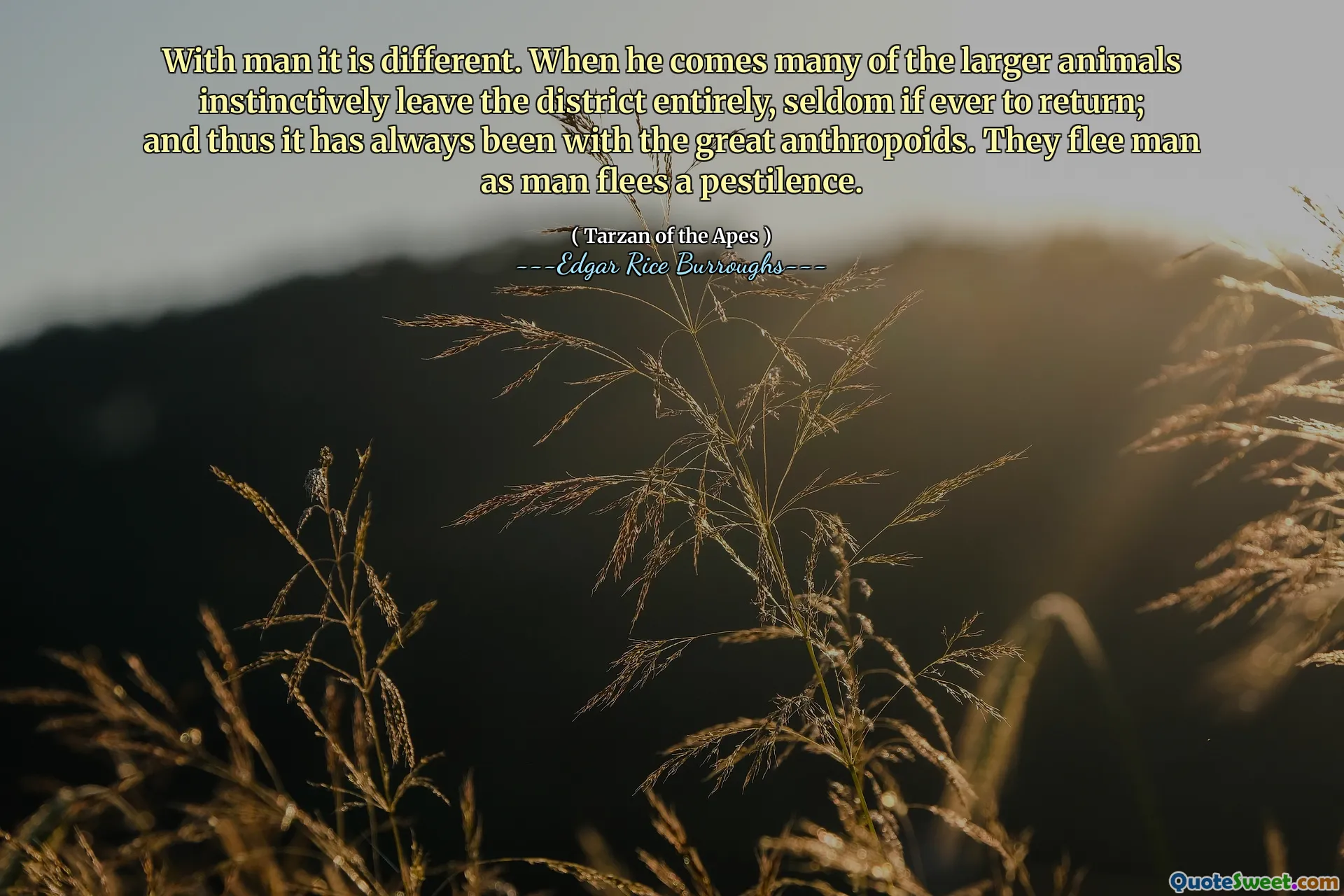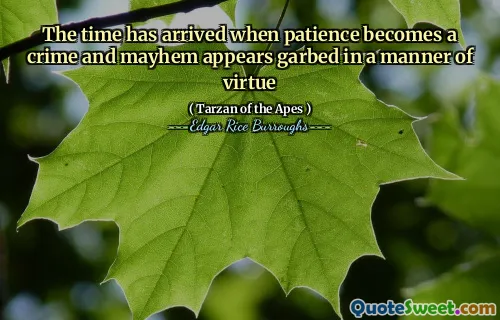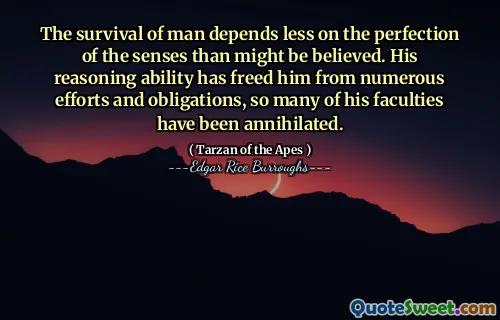
With man it is different. When he comes many of the larger animals instinctively leave the district entirely, seldom if ever to return; and thus it has always been with the great anthropoids. They flee man as man flees a pestilence.
This quote highlights the profound impact human presence has on the natural world and the animal kingdom. It reflects an observation rooted in both the primal instincts of animals and the evolutionary history that shapes their behavior. Animals, especially larger ones, develop survival strategies that often include fleeing from perceived threats, among which humans have historically been viewed as apex predators or dangers to their existence. The comparison to the great anthropoids emphasizes a deep evolutionary kinship, suggesting that our close relatives in the animal world share this instinctual fear and avoidance of humans. From an ecological perspective, this behavior influences animal distribution, migration patterns, and population dynamics, thereby shaping entire ecosystems. Ethically and philosophically, this quote prompts introspection about mankind's relationship with nature. It underscores the responsibility humans bear in either disrupting or coexisting peacefully with wildlife. The instinctual flight of animals may also serve as a metaphor for the broader impact of human activities—deforestation, pollution, urbanization—driving species away from their natural habitats. Recognizing these interactions is crucial for conservation efforts, emphasizing respect for animal behaviors and their innate fears. It reminds us that, unlike other creatures, humans often impose themselves as a dominant force, altering environments in ways that cause animals to flee year after year. Ultimately, this quote invites us to consider the importance of understanding and respecting the natural world, fostering empathy for creatures that instinctively avoid us, and reflecting on the consequences of our dominance over nature.








